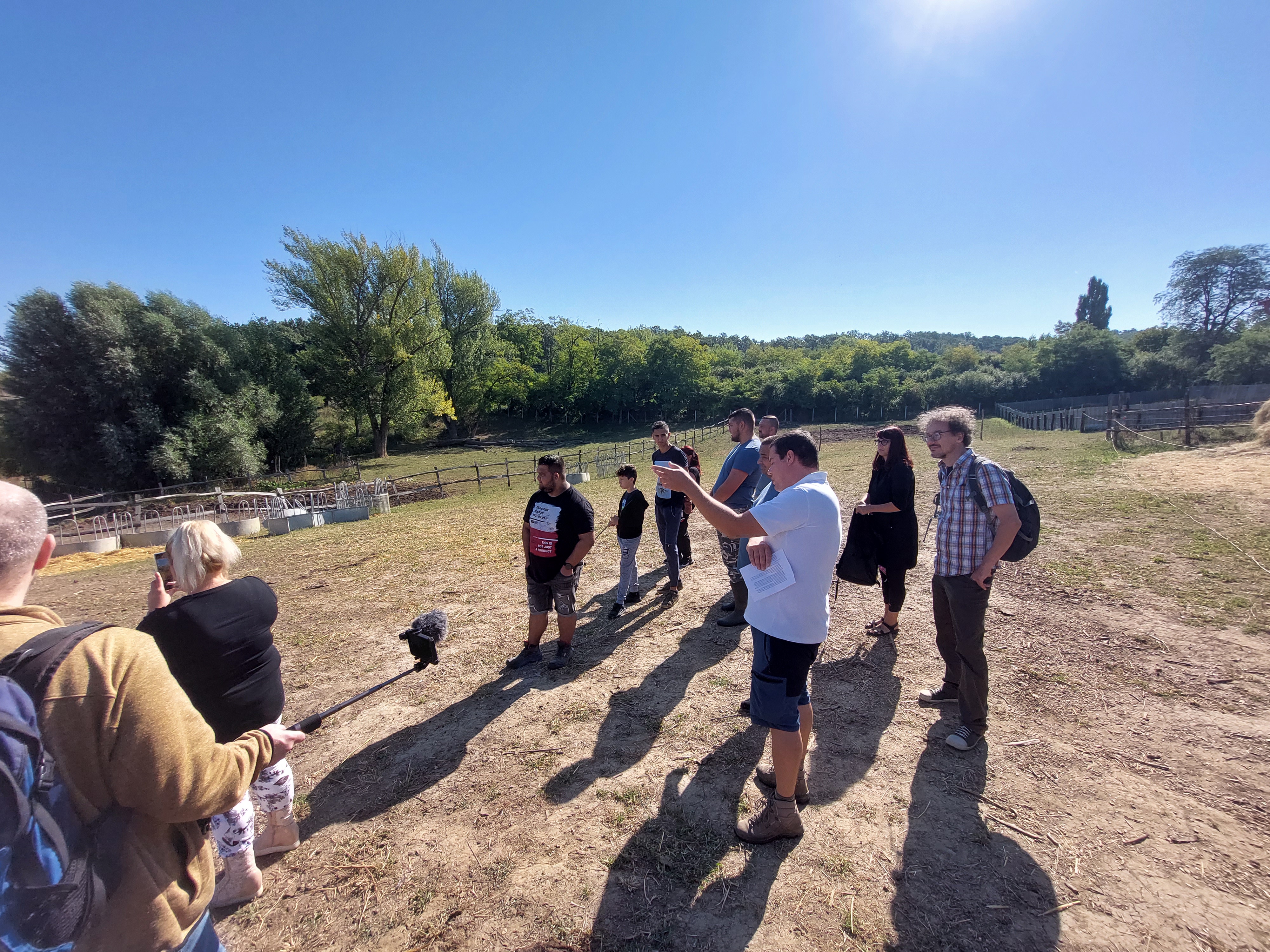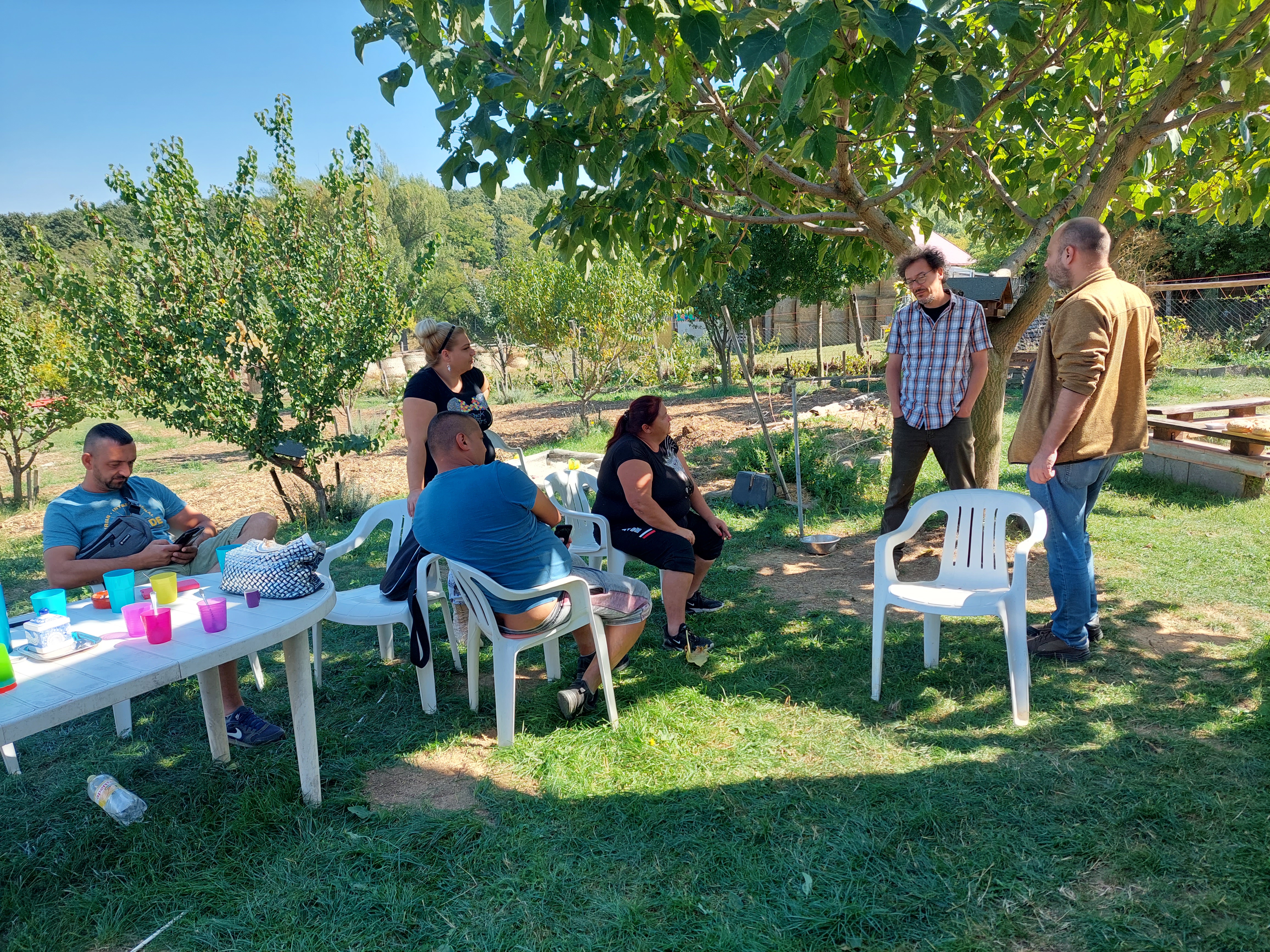9 citizen scientists and co-researchers from Siklósbodony participated in a study visit at Cinege Farm at Törökbálint and Pallagvölgyi Biogarden at Kóspallag. ESSRG researchers Alexandra Czeglédi, György Pataki, Márton Oblath also accompanied the group.
The fundamental purpose of the study visit was to get inspired and acquire knowledge for implementing community-based agri-food innovations in Siklósbodony. The participants prepared a set of questions for the permaculture farmers in advance to ensure the study visit meets their needs and equips them with practical knowledge.

At Cinege Farmhouse, Bruder Márton, agricultural economist and equestrian instructor, hosted the group for an extensive and rich in details study visit. Márton keeps his livestock according to their natural needs, based on spacious pastures, following principles of permaculture farming.
To the visitors, he presented natural and environmental tools and methods he has adopted at the chemical-free, bird-friendly and zero-emission farm. His priority is to keep animals balanced and happy through natural husbandry, meeting their social needs and non-violent treatment. The 25 hectares of wooded pasture provide sufficient habitat to meet their physical, nutritional and social needs.
Youth citizen scientists and co-researchers got to know that livestock, such as horses and cattle, are social creatures, and therefore, keeping them individually is not the right way to raise them as their nervous systems suffer. To keep them healthy and happy, they require every-day-work, prompt planning, and after all, caring.
At Pallagvölgyi Biogarden, youth citizen scientists and co-researchers further engaged with the practice of permaculture farming. They have witnessed the result of daily work done by 5 young agri-food experts: the garden was gradually transformed into a permaculture garden due to community work and entrepreneurial views on food production.
Szilágyi Alfréd, organic farming engineer, is committed to sustainable agriculture and traditional folk farming. His co-created Biogarden shows how agri-food innovations in a small village are possible to pursue due to prompt planning. To the youth citizen scientists and co-researchers, he demonstrated how permaculture works in practice: it can provide a sustainable culture, a way to live in harmony with nature, even on small pieces of land.

Siklósbodony’s youth citizen scientists and co-researchers are currently participating in the Hungarian cases (B) that Márton Oblath and Gina Bartáné Somogyi co-coordinate. During the study visit, participants were taking pictures and recording videos as part of the preliminary art-based research practices within YouCount.